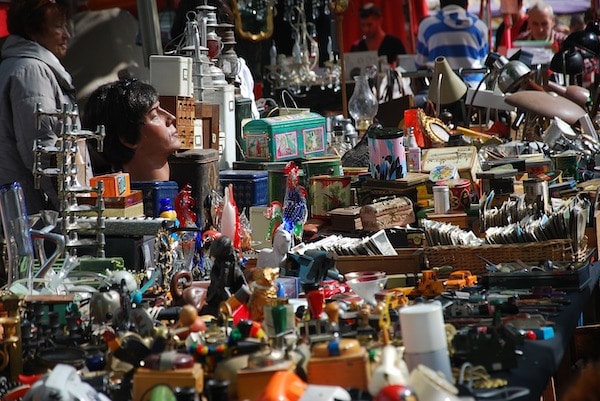
Boomers are retiring and downsizing in great numbers. Many of them want to pass their household goods on to their children, the Millennial Generation. The problem is, that most Millennials do not want these items. These generations have different lifestyles and view stuff differently so it is important to start the downsizing process early and plan what to do with the stuff.
The Boomer Generation
Up until the earliest part of the 20th century, wealth was accumulated by inheritance. People got married and their wedding gifts were used “for life.” These gifts were cared for, treasured, and then passed down to the next generation. This changed during the latter half of the century. Mass-market production meant household goods became more affordable so many Boomers shopped and shopped to create a “well-appointed, middle-class home.” This home (usually rather large) was a house in the suburbs that Boomers lived in for most of their lives.
Differences of the Millennial Generation
Frequent Moves. In order to advance their careers, younger people must change jobs. This generation does not want to pack up and move an entire set of china as well as everyday dishes. Nor are they looking forward to hauling the grand piano up and down flights of stairs.
Digital Assets. Younger generations stream their music, movies, and other entertainment from online sources. They seldom need for CDs or DVDs let alone the antique Victrola and collection of 78-speed records. Receipts, bills, and other paperwork that used to be sent by mail are sent by email now. There isn’t much need for filing cabinets in a Millennial household. Also, with the advent of the internet and e-books, wall-to-wall bookcases (and sets of encyclopedias) are not a priority nor needed by younger generations.
Smaller Living Spaces. Millennials live in smaller homes. They just don’t have the space for the entire set of china. Nor do they have room for the server, buffet, hutch, dining room table, and eight matching chairs – even if they are Gibbard originals.
Leisure Time. Boomers spent their weekends mowing lawns and gardening. Younger people in urban high-rises don’t need gardening equipment and home-improvement tools – nor do they want to spend their free time maintaining a large household. They want to put their dishes in the dishwasher instead of hand washing fine china and crystal or polishing silver.
Talking about “The Stuff”
Children
Start talking to your parents about downsizing sooner rather than later. If you don’t want specific items, let your parents know. Your non-acceptance of their stuff is not related to how you feel about them. Explain that your good memories are enough and you don’t need the material possessions.
If you and other family members are sentimental about a certain item but cannot take it (e.g. a piano that brought the family together in song every holiday), create a memory book full of stories, photos, and copies of other mementos. This way, everyone with good memories can contribute and have a copy.
Parents
Recognize that times have changed. The items you valued at a young age are not what people today value. Your children (and perhaps nieces and nephews) are more likely to want smaller items that have a more personal meaning. For example, your children may want a few pieces of jewelry or a special teacup. You could give each child one serving piece of your good china set (there is no law that says the whole set must stay together), so that when the family comes together, so does the china.
Also, it is important to make decisions about your household goods when you want to, as opposed to when you have no other choice. This will ensure that the right people inherit the items that have the most meaning to both of you. In addition, you can relax knowing that you haven’t left the whole burden of downsizing to your children.
If the thought of downsizing is overwhelming, contact the Out of Chaos team. We offer organizing services and can help you downsize and disburse unwanted items through services such as online auctioning with MaxSold. For more information, feel free to contact us.
Image by Kyrios Kyriakos from Pixabay
